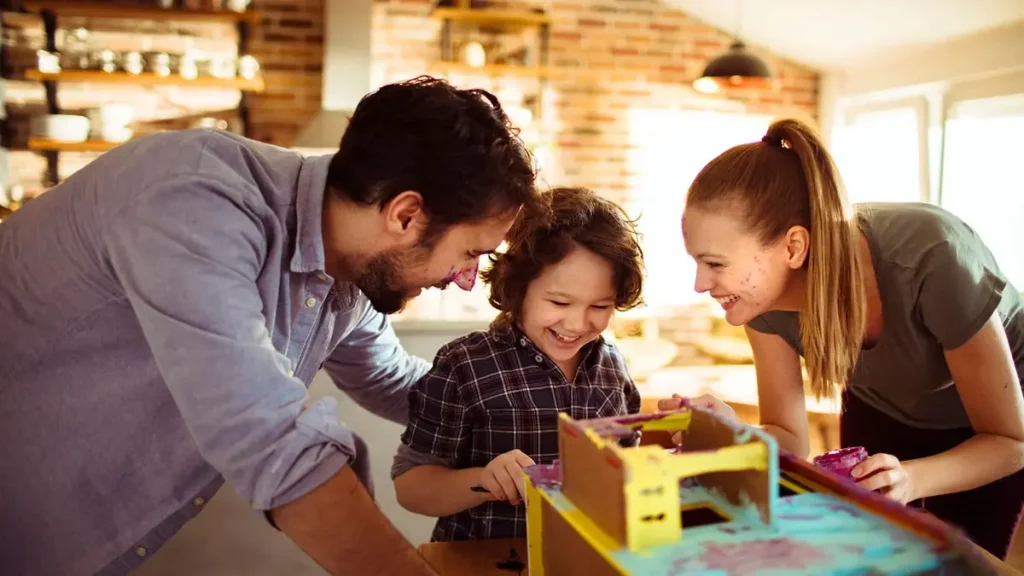Positive Parenting Tips: How to Raise Happy and Confident Toddlers

Raising a toddler can be both joyful and challenging. During this stage, children develop essential social, emotional, and cognitive skills that shape their future. Positive parenting techniques help nurture a toddler’s growth while fostering a strong parent-child bond. Here are some effective strategies to raise happy and confident toddlers:
1. Show Unconditional Love and Support
Toddlers thrive in an environment where they feel safe and loved. Regular hugs, encouraging words, and quality time together reassure them of your support. Let them know they are valued, even when they make mistakes.
2. Encourage Positive Behavior
Reinforce good behavior with praise rather than focusing on negatives. Acknowledge small achievements by saying, “Great job sharing your toys!” Positive reinforcement helps toddlers develop self-confidence and encourages them to repeat desirable actions.
3. Set Clear and Consistent Rules
Toddlers need structure to understand expectations. Simple rules like “We use gentle hands” or “Toys go back in the basket after play” help them learn boundaries. Be consistent in enforcing these rules to avoid confusion.
4. Use Gentle Discipline
Instead of punishing, redirect their attention and explain consequences calmly. For example, if a toddler throws a toy, explain, “We don’t throw toys because they can break.” Offering alternatives, like throwing a soft ball outside, helps them understand appropriate behavior.
5. Encourage Independence
Allowing toddlers to make simple choices, like picking their outfit or choosing between two healthy snacks, fosters independence. These small decisions build confidence and decision-making skills.
6. Foster Communication Skills
Talk to your toddler frequently, read books together, and encourage them to express feelings. Respond to their words and emotions patiently, which helps them feel understood and strengthens their language development.
7. Make Learning Fun
Toddlers learn best through play. Engage in interactive activities like storytelling, singing, or sensory play to make learning enjoyable. Hands-on experiences stimulate curiosity and cognitive growth.
8. Be a Role Model
Children imitate their parents’ behavior. Show kindness, patience, and respect in daily interactions. When they see you handling situations calmly, they are more likely to adopt the same approach.
9. Maintain a Routine
A consistent daily routine provides toddlers with a sense of security. Regular meal times, playtimes, and bedtime routines help them know what to expect, reducing stress and tantrums.
10. Practice Patience and Understanding
Every child is unique, and learning takes time. Instead of reacting to tantrums with frustration, acknowledge their emotions and guide them through calming techniques like deep breathing or counting.
Interesting Read
Conclusion
Positive parenting helps build a loving and supportive environment for toddlers to grow into happy, confident individuals. By practicing patience, encouragement, and gentle guidance, parents can shape their child’s early years into a foundation for lifelong success.
